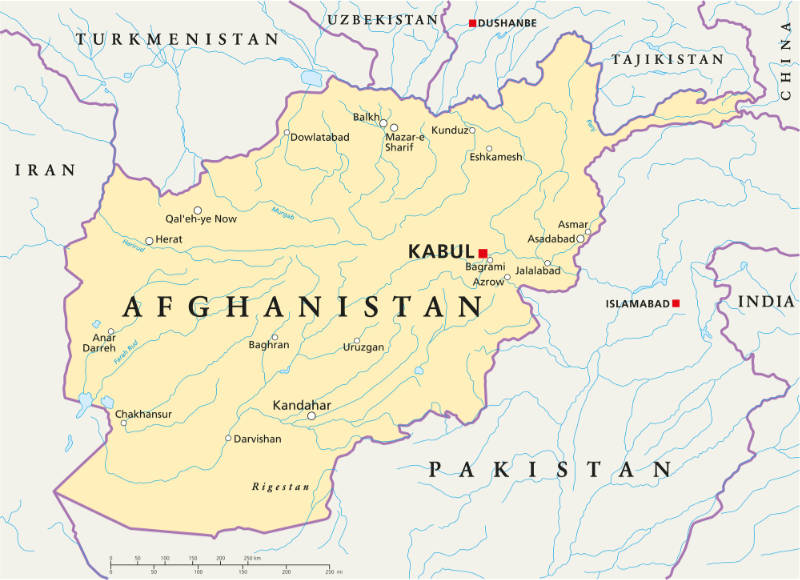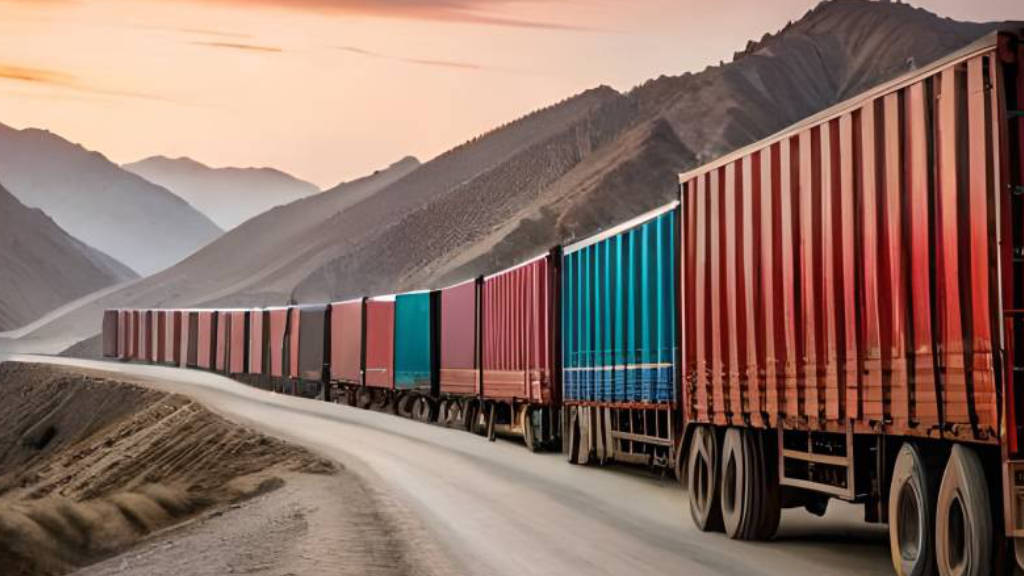Russia intends to develop bilateral cooperation with Afghanistan in various fields, Security Council Secretary Sergey Shoigu has said, in meetings with Afghanistan’s Deputy Prime Minister Mohammed Abdul Kabir. Shoigu paid a visit to Afghanistan on Monday, (November 25) where he met with the country’s top leadership. During four rounds of talks, he discussed economic, transportation and security issues with deputy prime ministers and ministers.
Shoigu said that “We intend to develop bilateral cooperation between Russia and Afghanistan in many areas. I confirm our readiness to establish a constructive political dialogue between our countries, including for the purpose of giving impetus to the process of intra-Afghan settlement.”
According to him, Moscow is convinced that the establishment of Afghanistan as a stable and independent state is in the interests of all states in the region. Shoigu pointed out that Russia will continue to support Kabul’s integration into regional structures and associations, saying “This step will allow not only to establish an effective dialogue on the problems of countering challenges and threats to security, such as terrorism and drug trafficking, but also to intensify trade and economic cooperation.”
Afghanistan’s economy relies heavily on agriculture. Major crops include wheat, maize, rice, and fruits such as pomegranates, apricots, and almonds. The agricultural sector also includes livestock and dairy production. Additionally, Afghanistan possesses significant untapped mineral resources, including precious metals, gemstones, and industrial minerals such as talc, chromite, and nephrite. The mining sector, despite challenges, has attracted international investments, with increased involvement from the Taliban since their takeover in 2021. The textile industry, particularly the production of carpets, has historically been significant, with Afghan rugs highly valued on the global market. Afghanistan also has energy reserves, including natural gas and hydropower, though these remain largely underdeveloped due to the country’s political instability and insecurity.

Afghanistan is engaged in various regional and bilateral trade agreements to improve its economic integration. Key memberships include the South Asian Free Trade Area (SAFTA), facilitating trade with neighbouring South Asian countries, and bilateral agreements with Pakistan, China, Iran, and India. Afghanistan is also a member of the World Trade Organization (WTO), benefiting from global market access. Notably, the Afghanistan–Pakistan Transit Trade Agreement (APTTA) allows Afghanistan to import goods duty-free through Pakistani seaports, though its implementation has faced challenges. The Economic Cooperation Organization Trade Agreement (ECOTA) aims to promote regional trade.
In October 2024, China announced it would offer Afghanistan zero-tariff treatment for all Afghan exports, further strengthening their trade ties. Afghanistan has significant mineral reserves yet little infrastructure to extract them, Russia is interested in this potential and will probably recognise the Taliban as the legitimate government, however the security situation remains tense. Afghani officials have been attending Russian investment forums.
The Trans-Afghan Railway
The proposed Uzbekistan-Afghan-Pakistan railway would also help with Afghani imports and exports. Preparations are ongoing ahead of a feasibility study for a trans-Afghan railroad project, Russian Deputy Prime Minister Alexei Overchuk has said after talks with the Afghan authorities in Kabul on the same visit as Shoigu. He stated that “We view this project as key to improving connectivity in the region of Central Asia and Eurasia as a whole. We see it as an element of our large project of the North-South international transport corridor, designed to connect countries in the north of Eurasia with the Global South. Two railroads could be built here – western and eastern railroads. This is what our companies, our Transport Ministry are working on today with counterparts from other Central Asian countries. Preparations to conduct this project’s feasibility study are now in progress. We are interested in Afghanistan playing the key role in transport links that it can play. Our counterparts are also committed to joint work.”
As Afghanistan is now under the central government’s (Taliban) control, there is an opportunity to conduct transit freight shipments by road, and trucking companies from Central Asia are actively using this route today, Overchuk said.
The proposed rail routes would run north-south from Uzbekistan, bisecting Afghanistan and Pakistan to reach Pakistan’s sea ports on the Persian Gulf, with access to the Indian Ocean. A second, East-West route is also being considered from Turkmenistan, heading east across Afghanistan and again to Pakistan, where it could link up with the China-funded China-Pakistan Economic Corridor (CPEC) project that also links by rail to Pakistan’s southern ports but also provides road connectivity to China’s Xinjiang Province. China has invested an estimated US$90 billion in Pakistan’s infrastructure via its Belt & Road Initiative project, which Afghanistan has also joined.
Afghanistan’s bilateral trade with Russia has shown growth, increasing from approximately US$86.6 million in 2021 to US$170 million in 2022 and US $1 billion in 2023. As of 2024, the exact numbers for the full year are not yet available, but the ongoing trends suggest a positive trajectory, with expectations to increase trade turnover to US$3 billion by 2025 and US$10 billion by 2030.
Further Reading
Russia-Afghanistan 2024 Bilateral Trade Relations: Update

 Русский
Русский













